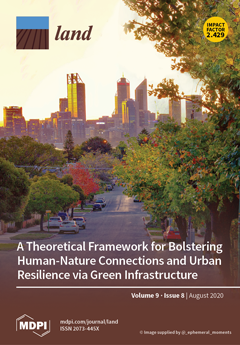Brownfields are a real problem which affects the urban appearance of cities and the quality of life of their inhabitants. In Romania, industrial areas were mainly concentrated on the outskirts of large cities, in the immediate vicinity of residential areas. With the closing of factories and the…
The National Program of Systematic Land Registration aims to register all land property in Romania by 2023. The goal has proven difficult to achieve, as by June 2022 only 4% of the localities in the country were completed. The aim of this research is to find the similarities and differences…
The empirical investigation of which risk factorpolitical or financialis the optimal driver of country risk in emerging economies in the twentyfirst century has grown into a significant and volatile issue in recent decades This paper investigates the linkages between political risk and financial…
Property boundaries have a significant importance in cadaster as they define the legal extent of the ownership rights. Among 3D data models, Industry Foundation Class (IFC) provides the potential capabilities for modelling property boundaries in a 3D environment. In some jurisdictions, such as…
Marginal and less-favored regions are characterized by negative migration balance, lower living standards, aging of the population, a lower number of employment opportunities, lower educational level, and lower investments in the territory. Gemer is one of these regions in Slovakia. On the other…
Foreign land grabbing is acknowledged as a phenomenon that generates disempowerment and dispossession of local farmers, human rights violations. Previous studies have revealed the lack of ethical benchmarks in foreign large-scale land transactions that raise moral concerns. It is evident that…
Human–wildlife interactions (HWI) were frequent in the post-socialist period in the mountain range of Central European countries where forest habitats suffered transitions into built-up areas. Such is the case of the Upper Prahova Valley from Romania. In our study, we hypothesized that the…
The compossessorates in Transylvania (Romania) are traditional varieties of commons. During the inter-war period two types of compossessorates were most common in the Olt Land, between the Olt River and the Southern Carpathians: those of the former boyars and the ones owned by the former serfs.…
The establishment of the Natura 2000 network in Romania constitutes a turning point for the policy on biodiversity conservation in this country. The presence of human communities in certain Natura 2000 areas determines complex interactions between social and ecological systems, particularly in…
Soybean is an important natural source of isoflavones, but their concentration is likely to be influenced by external factors, such as climatic conditions and soil tillage systems. However, there is minimal information about the effects of such external factors on the isoflavone concentration in…
The aim of the present study is to test empirically the Environmental Kuznets Curve (EKC) hypothesis for 42 Romanian counties over the 2000-2014 period. Specifically, we investigate the existence of an inverted U-shaped curve relationship between residential built-up land and economic…
The importance of studying coastal areas is justified by their resources, ecosystem services, and key role played in socio-economic development. Coastal landscapes are subject to increasing demands and pressures, requiring in-depth analyses for finding appropriate tools or policies for a…







